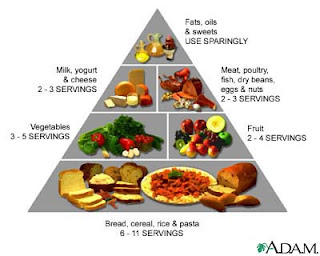Whether you are trying to lose 5 pounds or more than 50, the same principles determine how much weight you lose and how fast your weight loss will occur. Remembering the following simple guidelines and putting them into practice can lead to weight loss without the aid of any special diet plans, books, or medications.
Our body weight is determined by the amount of energy that we take in as food and the amount of energy we expend in the activities of our day. Energy is measured in calories. If your weight remains constant, you are probably taking in the same amount of calories that you burn each day. If you're slowly gaining weight over time, it is likely that your caloric intake is greater than the number of calories you burn through your daily activities.
Everyone is in control of the amount of food he or she consumes each day, so our intake of calories is something we can control. To a major degree, we can also control our output of energy, or the number of calories we burn each day. The number of calories we burn each day is dependent upon
1. our basal metabolic rate (BMR), the number of calories we burn per hour simply by being alive and maintaining body functions.
2. our level of physical activity.
Lifestyle and work habits partially determine how many calories we need each day. Someone whose job involves heavy physical labor will naturally burn more calories in a day than someone who sits at a desk most of the day (a sedentary job). For people who do not have jobs that require intense physical activity, exercise or increased physical activity can increase the number of calories burned.
As a rough estimate, an average woman 31-50 years of age who leads a sedentary lifestyle needs about 1,800 calories per day to maintain a normal weight. A man of the same age requires about 2,200 calories. Participating in a moderate level of physical activity (exercising three to five days per week) requires about 200 additional calories per day.
 |
| You must weight-loss with some tips |
 |
| Weight Management Triangle |
 |
| Very Important Diet Guide for You |
 | |
| weight-loss-before-after |
 |
| Weight-Management |


No comments:
Post a Comment